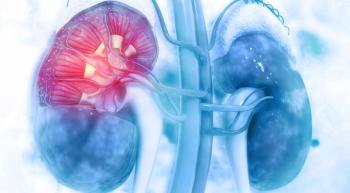
Safety Profiles to Look Out for in New Breast Cancer Treatments
New therapies in breast cancer, particularly ADCs, present unique safety profiles for nurses to be aware of, according to Erika Hamilton, MD.
Treatments for patients with breast cancer with unique safety profiles include antibody-drug conjugates (ADCs) and certain CDK4/6, PI3K, and AKT inhibitors, according to Erika Hamilton, MD.
In an interview with Oncology Nursing News at the 24th Annual International Congress on the Future of Breast Cancer® East, hosted by Physicians’ Education Resource® (PER), LLC, Hamilton highlighted the unique adverse events associated with current treatments for breast cancer prior to her presentation during the meeting on new therapies on the horizon in the breast cancer space.
Hamilton, director of breast and gynecologic cancer research at Sarah Cannon Research Institute in Nashville, Tennessee, explained that ADCs such as fam-trastuzumab deruxtecan-nxki (T-DXd; Enhertu) and sacituzumab govitecan-hziy (Trodelvy) can have different concerns associated with them, despite being in the same drug class.
While T-DXd is associated with nausea and interstitial lung disease (ILD), sacituzumab govitecan can be associated with neutropenia and diarrhea early on days 1 and 8 of drug administration. Likewise, mucositis can develop in patients taking
Additionally, Hamilton mentioned that oral selective estrogen receptor degraders (SERDs) and proteolysis-targeting chimeras (PROTACs) are better tolerated.
Transcript
I go back to ADCs in terms of each one of them being unique. We know trastuzumab deruxtecan has nausea, and we have to be careful about ILD. Sacituzumab govitecan can be more challenging with day 1 and day 8 administration in terms of the neutropenia and managing diarrhea. Then with datopotamab deruxtecan, we have to be careful with the mucositis and caution our patients to use a dexamethasone mouth rinse in advance of having any problems. Once they have mucositis, it can be kind of tough to get rid of, so we want to really emphasize a prophylactic treatment there. In terms of the oral SERDs or the oral PROTACs, these tend to be pretty well tolerated drugs, so luckily I don't think that there are very many adverse effects that we're having to manage in clinics, but certainly when we get into the combinations, particularly with abemaciclib or PI3K and AKT inhibitors, we can end up with more adverse effects that we need to manage as well.
This transcript has been edited for clarity and conciseness.
Newsletter
Knowledge is power. Don’t miss the most recent breakthroughs in cancer care.





























































































